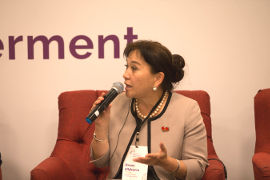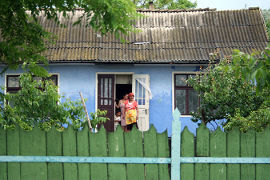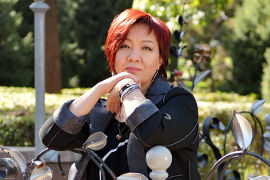SDG 5: Achieve gender equality and empower all women and girls
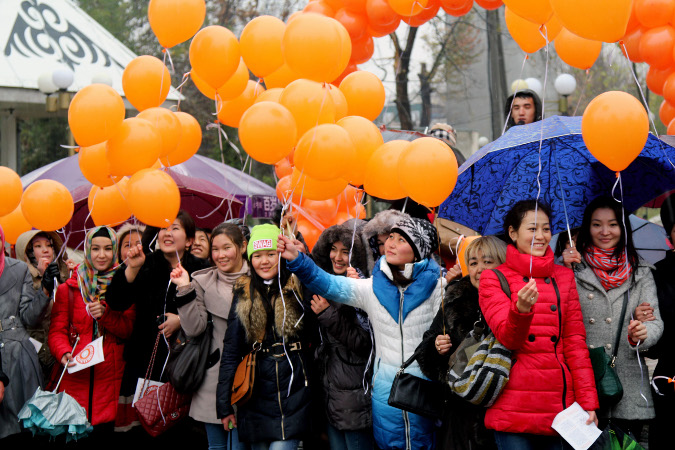
Targets
- End all forms of discrimination against all women and girls everywhere.
- Eliminate all forms of violence against all women and girls in the public and private spheres, including trafficking and sexual and other types of exploitation.
- Eliminate all harmful practices, such as child, early and forced marriage and female genital mutilation.
- Recognize and value unpaid care and domestic work through the provision of public services, infrastructure and social protection policies and the promotion of shared responsibility within the household and the family as nationally appropriate.
- Ensure women’s full and effective participation and equal opportunities for leadership at all levels of decisionmaking in political, economic and public life.
- Ensure universal access to sexual and reproductive health and reproductive rights as agreed in accordance with the Programme of Action of the International Conference on Population and Development and the Beijing Platform for Action and the outcome documents of their review conferences.
- Undertake reforms to give women equal rights to economic resources, as well as access to ownership and control over land and other forms of property, financial services, inheritance and natural resources, in accordance with national laws.
- Enhance the use of enabling technology, in particular information and communications technology, to promote the empowerment of women.
- Adopt and strengthen sound policies and enforceable legislation for the promotion of gender equality and the empowerment of all women and girls at all levels.
Women and girls, everywhere, must have equal rights and opportunity, and be able to live free of violence and discrimination. Women’s equality and empowerment is one of the 17 Sustainable Development Goals, but also integral to all dimensions of inclusive and sustainable development. In short, all the SDGs depend on the achievement of Goal 5.
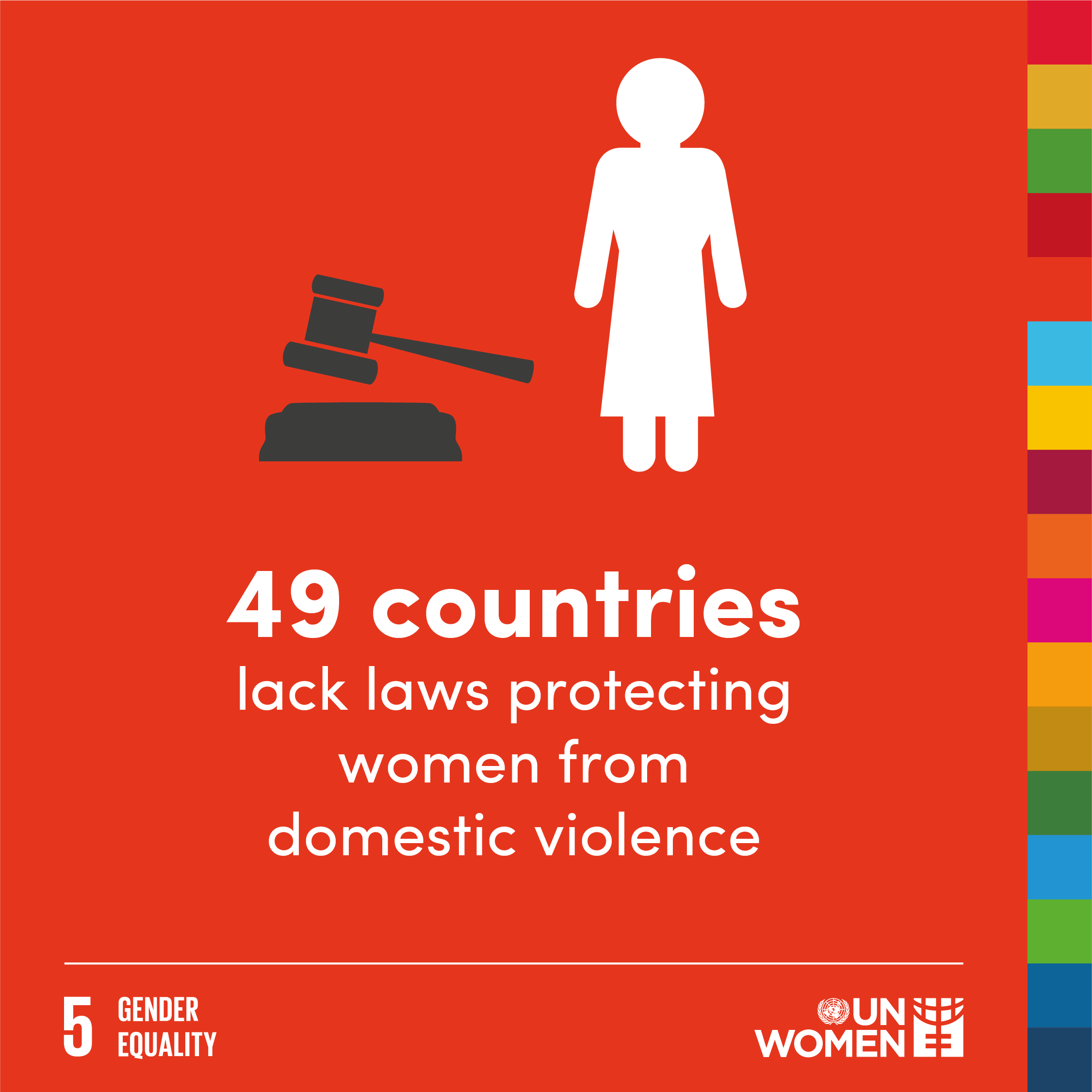
Gender equality by 2030 requires urgent action to eliminate the many root causes of discrimination that still curtail women’s rights in private and public spheres. For example, discriminatory laws need to change and legislation adopted to proactively advance equality. Yet 49 countries still lack laws protecting women from domestic violence, while 39 bar equal inheritance rights for daughters and sons. Eliminating gender-based violence is a priority, given that this is one of the most pervasive human rights violations in the world today. Based on data from 87 countries, 1 in 5 women and girls under the age of 50 will have experienced physical and/or sexual violence by an intimate partner within the last 12 months. In Central and Southern Asia, the correspoding figure is 23.1 per cent. Harmful practices, such as child marriage, steal the childhood of 15 million girls under age 18 every year. Central and Southern Asia has the highest rates of child marriage, with 16 per cent of women currently aged between 20 and 24 married before they turned 15, and 43 per cent before age 18. In Tajikistan, girls who married before age 15 delivered their first child at the average age of 17, compared to age 21 for girls who married at 15 or older.
Women do 2.6 times more unpaid care and domestic work than men. However, in Central and Southern Asia, the figure is even higher – 3 times, with a huge variation across countries within the region. On the other hand, in Europe and Northern America, the corresponding figure is lower, at 1.9 times. However, there is a noticeable amount of variation at the country level.
While families, societies and economies depend on this work, for women, it leads lower earnings and less time to engage in non-work activities. In addition to equal distribution of economic resources, which is not only a right, but accelerates development in multiple areas, there needs to be a fair balance of responsibility for unpaid care work between men and women.
Sexual and reproductive rights are critical in their own right. Shortfalls in these multiply other forms of discrimination, depriving women of education and decent work, for example. Yet only 52 per cent of women married or in a union freely make their own decisions about sexual relations, contraceptive use and health care. In Kyrgyzstan and Tajikistan, the corresponding rates are 76.6 and 40.9 per cent respectively. Although data is limited, some estimates are available for countries in the Europe and Northern America region. In Albania and Ukraine, 61.5 per cent and 81 per cent of women, respectively, make their own informed decisions about sexual relations, contraceptive use and health care.
While more women have entered political positions in recent years, including through the use of special quotas, they still hold a mere 23.7 per cent of parliamentary seats, far short of parity. The figure for Central and Southern Asia is even lower, at 18.5 per cent. Within Europe and North America, Iceland has the highest proportion of women who hold parliamentary seats, at 47.6 per cent. Hungary, in contrast, has the lowest with only 10.1 per cent of parliamentary seats held by women. The situation is not much better in the private sector, where women globally occupy less than a third of senior and middle management positions.[1]
UN Women acts to empower women and girls across all its programmes and advocacy. With stepped up action on gender equality, every part of the world can make progress towards sustainable development by 2030, leaving no one behind.
Stories
In the words of Ainuru Altybaeva: “Bride kidnapping is not a tradition, it’s a crime”
Ainuru Altybaeva serves as a Member of Parliament in Kyrgyzstan, and has been an activist for women’s empowerment for over 10 years. She was the initiator of a law on toughening penalties for bride kidnapping, and a vocal participant of the national UNiTE to End Violence against Women and Girls women’s movement, coordinated and led by UN Women in Kyrgyzstan. UN Women partnered with Altybaeva on several advocacy initiatives in Kyrgyzstan, including an advocacy campaign in the parliament on adopting the new law on domestic violence.
“My girl is not for sale”: Escaping child marriage in Moldova
A Roma family challenges cultural norms by refusing a reparatory marriage. In their community, school drop-out rate is a stagerring record 58 per cent, mainly driven by child/early marriages, unplanned pregnancies and childcare responsibilities.
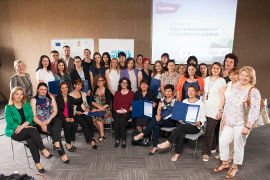
Local women's networks drive gender equality in rural Serbia
In rural Serbia, where the political and economic landscape is primarily dominated by men and few women participate in decision-making, local Women Councilors Networks set up with support from UN Women are challenging the status quo.
From where I stand: “We are not the ones to be shamed! Our attackers should be shamed and prosecuted!”
Dina Smailova, survivor of gang rape, decided to break her silence 25 years after the attack. Today, she leads the national movement against sexual violence in Kazakhstan named Don’t Keep Silent.
Notes
[1] UN Economic and Social Council (2017). Progress towards the Sustainable Development Goals: Report of the Secretary-General (E/2017/66).
